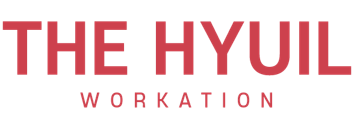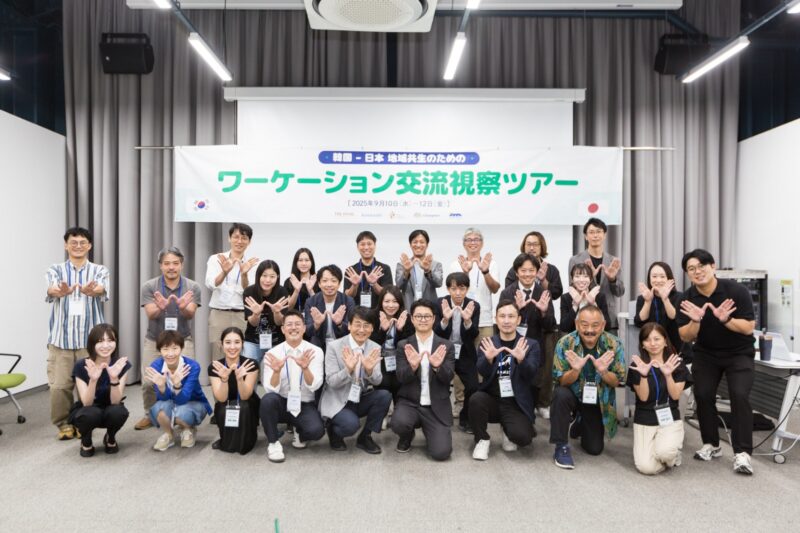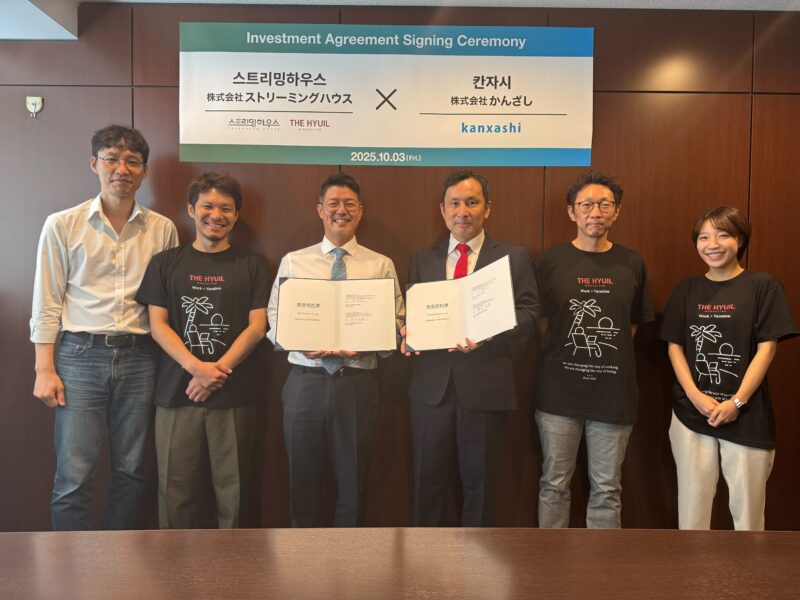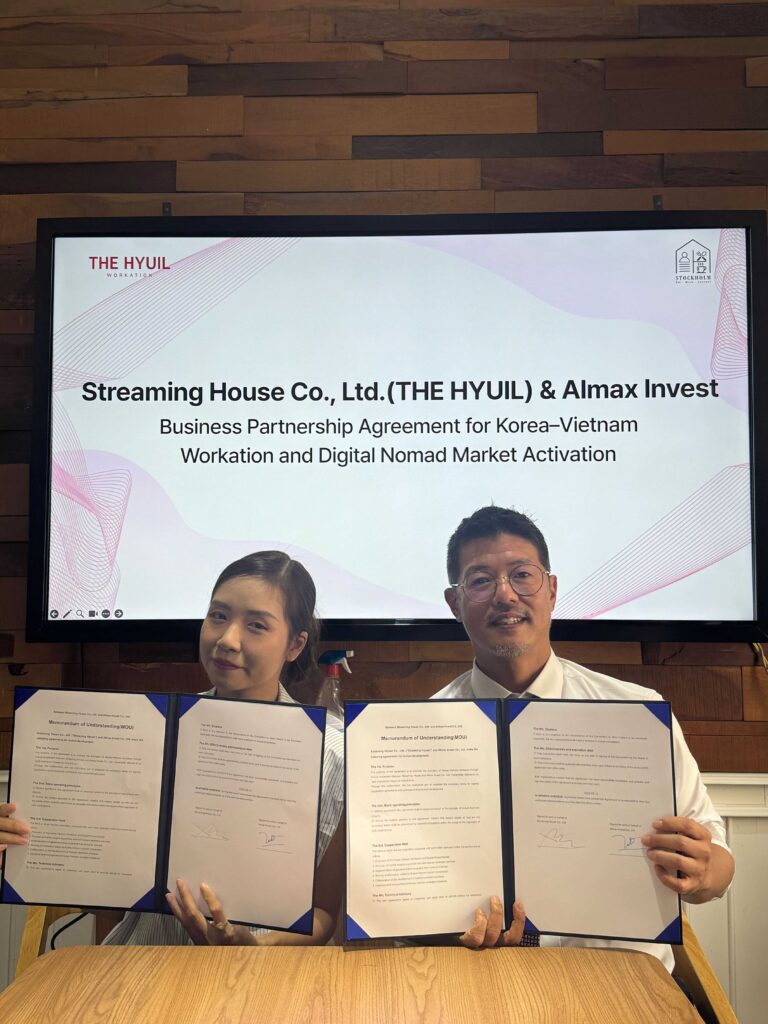THE HYUIL: “Building the Airbnb of Workation – Connecting Regions, Companies, and Digital Nomads”
The COVID-19 pandemic fundamentally transformed how we work, accelerating the adoption of remote work and giving rise to new lifestyle trends like workation—a blend of work and vacation. However, this shift has also exposed critical challenges: companies struggle to implement these new work cultures, local governments don’t know how to develop workation programs, and regional depopulation threatens communities across Korea and beyond.

Enter THE HYUIL, a pioneering workation platform that’s bridging these gaps with an innovative all-in-one solution. By connecting local governments, corporations, and digital nomads through comprehensive AI-inclusive workation packages, THE HYUIL has rapidly become Korea’s leading workation service provider, serving over 2,000 companies including Samsung, Hyundai, LG, and SK, while partnering with approximately 60 regional governments.
What sets THE HYUIL apart is its unique ecosystem approach: the company works with local governments to develop tailored workation products, then connects these offerings to corporate employees and digital nomads during weekdays and off-peak seasons. This creates a sustainable growth model that benefits all stakeholders—revitalizing local economies while providing companies and individuals with seamless access to workation experiences.
Now, THE HYUIL is taking its proven model global. Following successful expansion into Japan through a partnership and Pre-A investment from KANXASHI (a subsidiary of Japan’s largest OTA, AIRTRIP), the company is developing workation programs across Southeast Asia, including Vietnam, Thailand, and Indonesia. With a 90% client retention rate and a business model virtually unique worldwide, THE HYUIL aims to become the “Airbnb of workation”—not just a booking platform, but a company that defines and leads an entirely new lifestyle category.

THE HYUIL is participating in the 2025 Tourism Global Challenge program, organized by the Ministry of Culture, Sports and Tourism and Korea Tourism Organization, and operated by CNTTech. Through this program, THE HYUIL has gained valuable opportunities to conduct market research, establish partnerships in Vietnam and Japan, and leverage CNTTech’s extensive network to accelerate its global expansion strategy.
What problem is your team solving?
We identified two critical social changes accelerating after COVID-19: the rapid spread of remote work and regional decline due to population decrease. We founded THE HYUIL to address these challenges through workation—a new lifestyle paradigm. However, we discovered that both corporations and digital nomads faced difficulties adopting this unfamiliar work culture, while local governments struggled to develop workation products and attract participants. There was a clear gap in the market that needed to be filled.
How does THE HYUIL solve this problem?
We built a comprehensive workation solution that connects corporate employees, digital nomads, and regional workation ecosystems. Through our platform “THE HYUIL”—which means “the holiday” in Korean—we collaborate with local governments to develop regional workation products and provide them to companies and digital nomads during weekdays and off-peak seasons. This creates a mutual growth model that benefits everyone involved. Currently, we serve approximately 2,000 companies and offer workation programs in about 60 regions across Korea.
What’s your competitive advantage over rivals? What are your technical strengths?
We have three key competitive advantages. First, we offer “All Inclusive Workation Packages” in the most extensive regional network, including co-working spaces and accommodations, which saves consumers significant time and effort in finding suitable workation products.
Second, we provide one-stop services covering everything from consultation for workation implementation to booking and customer service, making it much easier for companies and digital nomads to adopt workation.
Third, we act as a hub connecting local government workation subsidies to consumers, reducing their financial burden through regional collaborations. These three competitive strengths have enabled us to become Korea’s number one workation company.
What products and services do you offer? What’s your current status?

Simply put, if traditional OTAs provide everything for travel, THE HYUIL provides everything for workation. For local governments, we develop regional workation products using our expertise and connect them to companies and digital nomads through our platform service.
Currently, we operate workation products in approximately 60 regions across Korea, as well as international programs in Fukuoka, Japan, and Nha Trang, Vietnam. We provide these workation products to about 2,000 companies, including Samsung, Hyundai, LG, and SK.
Recently, we’ve been developing workation programs in various Japanese regions including Okinawa, Tokyo, and Hokkaido, while also expanding our Southeast Asian offerings to include Nha Trang, Danang and Hoi An in Vietnam, as well as Thailand and Indonesia.
Who are your target customers and how large is your market?
Currently, our main customers are divided into domestic B2G and B2B segments. Through our B2G business, we work with national and local governments to develop and operate regional workation programs, then provide these products to B2B corporate clients.
However, we’re actively pursuing expansion into the Japanese B2B and B2G workation markets while simultaneously preparing services for the global digital nomad population of approximately 45 million people worldwide. This allows us to expand our target from existing B2B and B2G markets into global B2C.
What’s your business model?
THE HYUIL operates three distinct business models. First, our B2G model includes consulting for government and local government workation product development, regional workation business marketing and operations, and workation center establishment projects. Second, our B2B (and B2C) model generates revenue from selling workation products to companies and digital nomads. Finally, we earn commission fees from regional workation businesses that sell through our platform.
What achievements has your team accomplished so far?

THE HYUIL has attracted approximately 2,000 corporate clients—the largest in Korea—serving not only major conglomerates like Samsung, Hyundai, LG, and SK, but also various SMEs and startups with our workation programs. In the B2G market, we’ve collaborated with about 30 local governments and institutions, capturing over 60% market share. Most importantly, these aren’t one-time contracts—over 90% of our clients renew annually, demonstrating our market leadership.
Additionally, THE HYUIL’s workation model is unique globally, which has led to investment and collaboration opportunities in Japan, partnerships with Vietnamese companies, and recent selection for the Hokkaido F-Village global accelerating program as a startup addressing regional challenges in Hokkaido. We’re expanding our presence worldwide.
What makes your team competitive?
We currently have 20 crew members organized into B2G, B2B, business partnerships, design, and development teams. Our key competitive advantage is that our team members have direct experience with the most diverse workation business cases, enabling us to provide optimal solutions to our important B2G and B2B clients. Through this expertise, we’re promoting wider corporate workation adoption and building a workation growth model by connecting companies with regional partners.
What efforts are you making for global expansion, and what results have you achieved?
We’ve begun our global expansion starting with Japan. Since last year, we’ve participated in various events like Start-up Japan to raise awareness, and through this process, established a collaboration network with AIRTRIP, Japan’s largest OTA. This led to an MOU with their subsidiary KANXASHI for workation business collaboration in Japan and Korea, and on October 3rd, we successfully completed our Pre-A investment round.

Through this investment, we aim to develop workation programs within Japan, expand workation adoption among Japanese B2B companies, and create regional revitalization solutions to address population decline through new exchanges between Korea and Japan, coinciding with the 60th anniversary of normalized diplomatic relations.
Recently, we’ve been generating tangible results, including signing a promotional contract for Okinawa workation and participating in the Hokkaido F-Village (H.F.X.) global startup program. From September 10-12, we hosted a Korea-Japan Workation Regional Partnership FAM tour with Japanese local governments and companies, conducting site inspections and seminars to promote bilateral cooperation. We shared Korea’s workation model and received requests for follow-up projects from participating governments and companies, driving continued expansion.

Simultaneously, we’re planning market expansion into B2C services targeting digital nomads, developing programs in Vietnam, Thailand, and Indonesia. We recently signed a MOU with Almax Invest in Nha Trang, Vietnam, and established a collaborative partnership with Stockholm Coworking Space, officially launching our operations there. We plan to expand to Danang, Hoi An, Chiang Mai in Thailand, and Bali in Indonesia, growing into a truly global company.
How has the 2025 Tourism Global Challenge program helped your global expansion?
Most importantly, this program provided opportunities to participate in Vietnam market entry programs, enabling market research and partner development. Additionally, the diverse network support from CNTTech, the program operator, has been invaluable in establishing business partners in Vietnam and Japan. This has been the program’s greatest benefit.
Give us three reasons why investors should invest in THE HYUIL.
Our goal is to become the Airbnb of workation. Not simply because Airbnb is a global OTA, but because just as Airbnb became the world’s number one company through the culture of shared accommodation, we aim to become the world’s leading company through workation and the digital nomad lifestyle. Through extensive market research, we’ve confirmed that our business model is virtually unique worldwide.
With investment, we need to: First, develop a B2C app to rapidly enter the global B2C market. Second, develop diverse workation programs worldwide. Third, recruit global talent and prepare marketing strategies to support this growth.
We’ve been profitable since 2023, and this year we’re projecting 150% revenue growth compared to last year while maintaining profitability—we have no operational concerns. However, we’re seeking investment to leverage our competitive advantages for rapid growth into a global company.
Is there anything else you’d like to share beyond the questions above?
I believe the most important factor for global expansion is building local partnerships. As our lives continue to rapidly change post-COVID, if there are partners who want to create new possibilities through workation together, we’re always open to collaboration.
MORE FROM THE POST
- Splab, “Umoh AI: Fully Automated 10K+ Attendee Conferences Start here.”
- The Service Platform: “Revolutionizing Travel Shopping with Online E-Commerce and Tax-Free Services”
- Solvook: “Building Educational Content Ecosystem with AI”
- Hashpurple: “Revolutionizing K-Pop Fan Culture with Transparent Crowdfunding for Global Fandom”
- Connect.ED, “Reimagining Study Abroad Through AI and Building a Lifelong Learning Ecosystem”



Leave a Reply